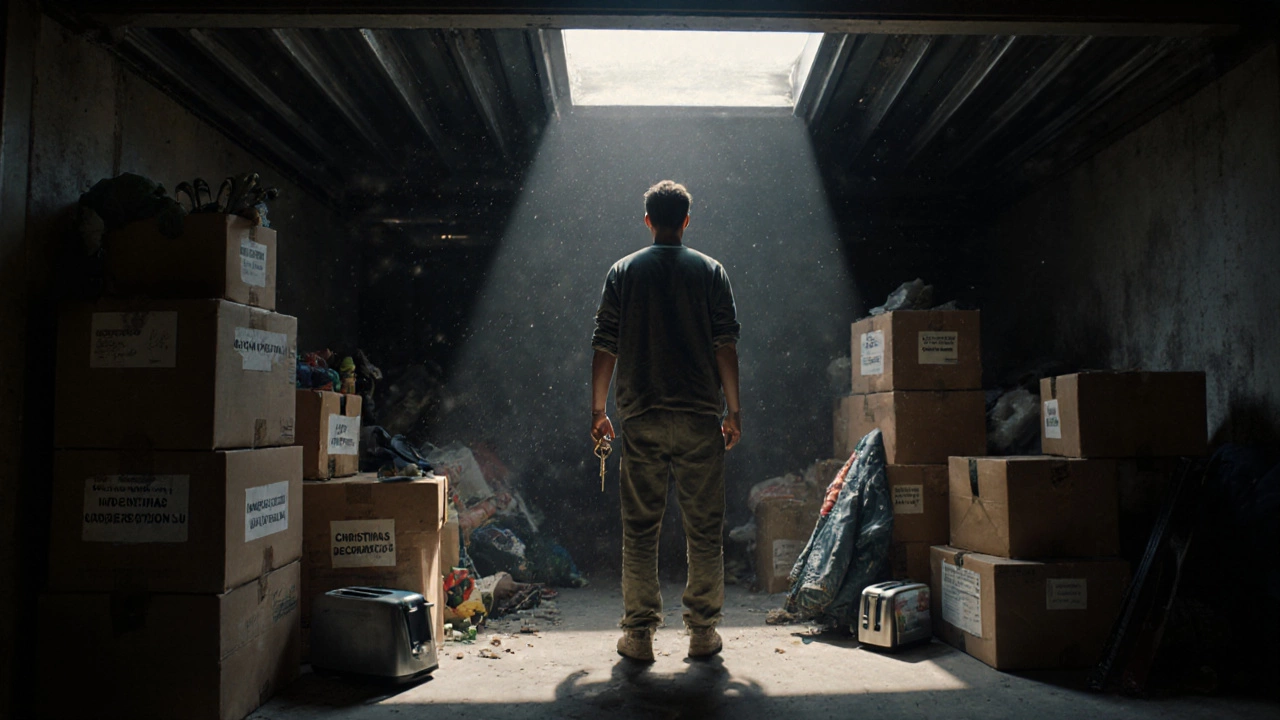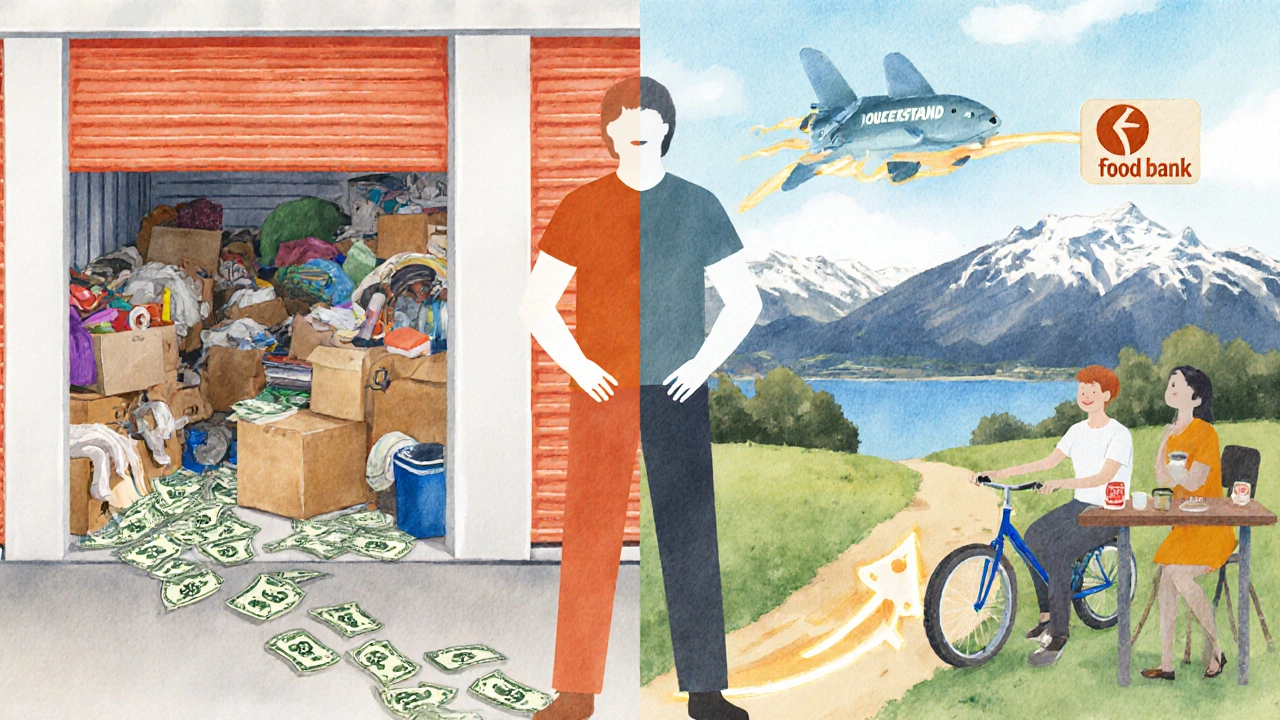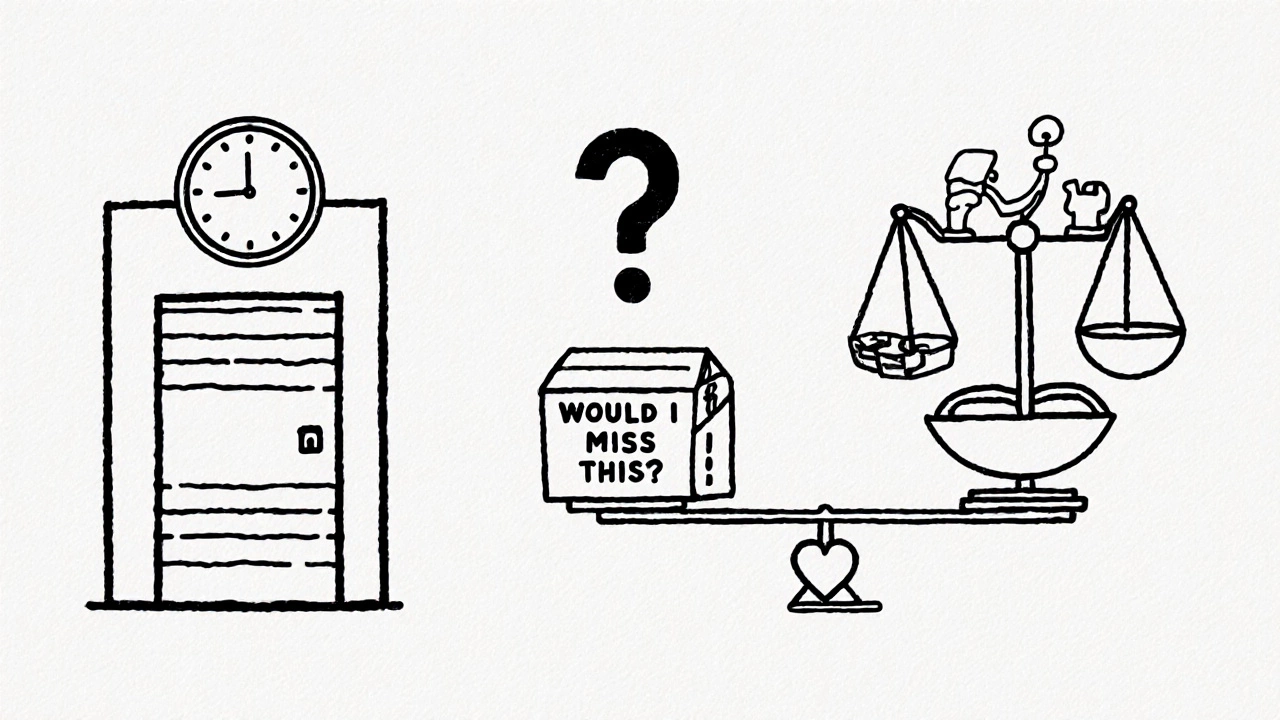Is Paying for Storage Worth It? Real Costs vs. Real Benefits

How much are you really paying to keep stuff you don’t use? You’re not alone if you’ve stared at a storage unit bill and wondered: Is paying for storage worth it? It’s not just about the monthly fee. It’s about time, stress, space, and what that money could be doing elsewhere.
What you’re really paying for
Let’s break down the numbers. In Wellington, a standard 5x3 meter storage unit costs between $80 and $150 a month. That’s $960 to $1,800 a year. For most people, that’s more than a yearly gym membership, a weekend getaway, or half a year’s worth of coffee. But unlike those things, storage doesn’t give you an experience. It just sits there.
Storage isn’t free. You pay for climate control, security cameras, insurance options, and 24/7 access. But here’s the thing: most people don’t use those features. If you’re storing winter coats, old textbooks, or holiday decorations, you don’t need climate control. You don’t need to visit every week. You just need a dry, locked space.
And yet, you’re still paying for the premium. That’s the first trap. Companies sell you peace of mind, not storage. The real cost isn’t the rent-it’s the invisible tax on your decision-making. Every time you open the door to your storage unit, you’re reminded of what you’re holding onto. And that’s not just physical clutter-it’s mental clutter too.
When storage makes sense
There are real, valid reasons to pay for storage. It’s not always a bad choice.
- You’re moving house and need a buffer between selling your old place and moving into your new one. In Wellington’s tight housing market, that gap can be three to six months.
- You’re downsizing after retirement and need time to sort through decades of belongings without rushing.
- You run a small business and store seasonal inventory-like ski gear, Christmas lights, or wedding supplies-that you can’t fit in your shop or home.
- You’re holding onto family heirlooms that no one else wants but you can’t bear to let go of.
In these cases, storage isn’t a luxury. It’s a practical bridge. But even then, you need to set a timer. If you’ve had something in storage for more than 18 months, you’re not storing-you’re hoarding. And hoarding costs money, space, and peace.
The hidden cost of forgetting
Most people don’t realize how often they forget what’s in storage. A 2024 survey by the New Zealand Storage Association found that 68% of renters hadn’t opened their unit in over a year. And 23% couldn’t remember what they’d put in there at all.
That’s not just silly-it’s expensive. Think about it: if you’re paying $120 a month and haven’t touched your stuff in 14 months, you’ve spent $1,680 to keep something you don’t need, don’t use, and can’t even recall.
And when you finally do go back? You’re not greeted with nostalgia. You’re greeted with boxes of mildewy sweaters, broken electronics, and half-used paint cans. You spend a weekend sorting through it all. Then you pay $80 to have a skip bin hauled away. That’s $248 spent in one weekend just to get rid of what you paid $1,680 to store.
Storage isn’t just a cost. It’s a cycle. You pay to store. You forget. You pay to remove. And then you pay again to store something else.

What you could do instead
What if you didn’t pay for storage at all?
Start with a hard question: Would you buy this again if you lost it today? If the answer is no, let it go. Donate it. Sell it. Recycle it. In Wellington, there are over 40 community drop-off points for unwanted items-from furniture to books to tools. The Salvation Army picks up large items for free. Trade Me has a thriving secondhand market. You don’t need to keep it. You just need to believe you do.
For seasonal items, use under-bed bins, closet organizers, or wall-mounted shelves. You’d be surprised how much space you have in your own home if you stop treating it like a museum. A study from the University of Auckland found that households that used vertical storage solutions reduced their need for external storage by 62% in under six months.
And for businesses? Rent shared warehouse space by the hour through platforms like StorageHive or BoxHub. You only pay when you need access. No monthly bills. No long-term contracts. Just pay for what you use.
The emotional weight of stuff
Here’s the truth most storage companies won’t tell you: you’re not paying for space. You’re paying for guilt.
That box of your kids’ artwork? You’re keeping it because you think letting go means forgetting them. That old wedding dress? You think selling it means giving up on love. That broken toaster from 2012? You think throwing it out means being ungrateful.
But here’s the counterpoint: memory doesn’t live in objects. It lives in stories. You don’t need the dress to remember your wedding. You need the photos, the laughter, the smell of the flowers. You don’t need the artwork to remember your child’s first drawing. You need the feeling of pride you had when you pinned it to the fridge.
Letting go doesn’t mean losing. It means making room-for new things, new memories, and new peace.

How to decide: a simple test
Before you sign a storage contract, run this three-step test:
- Can I access it easily? If it takes more than 30 minutes to get there and back, and you’ve only visited once in the last year, you don’t need it.
- Would I miss it if it vanished tomorrow? If the answer is ‘maybe’ or ‘I’ll find another,’ then it’s not worth the cost.
- Is it worth more than $100 a month? If you can replace it for less than $100, you’re paying more to store it than it’s worth.
If two or more answers are no, you’re not storing-you’re wasting money.
Final question: What’s your storage worth?
Let’s say you’re paying $100 a month for storage. That’s $1,200 a year. What could you do with that money instead?
- Take a weekend trip to Queenstown
- Pay off $1,200 of credit card debt
- Buy a new bike and ride to work all year
- Donate $1,200 to a local food bank
- Invest in a better mattress and sleep better every night
Storage doesn’t give you joy. It doesn’t grow your wealth. It doesn’t improve your health. It just sits there, quietly draining your bank account.
So ask yourself again: Is paying for storage worth it?
Maybe. If you’ve got a real, time-bound need. Maybe. If you’re holding onto something irreplaceable.
But if you’re just keeping things because you think you should? Then the answer is no. It’s not worth it. Not anymore.
How much does storage cost in New Zealand?
In New Zealand, storage unit prices vary by size and location. A small 2x2 meter unit starts at around $50 per month. A medium 5x3 meter unit, the most common size, costs $80-$150 per month. Large 10x5 meter units can run $200-$300. Climate-controlled units add $20-$50 extra. Prices are higher in Auckland and Wellington due to demand and land costs.
Is it cheaper to store things at home?
Yes, if you have unused space. Under-bed storage, attic bins, garage shelves, and closet dividers are free or low-cost alternatives. The catch? You need discipline. Storing things at home only works if you organize them properly. If you just pile things in a corner, you’re not saving space-you’re just moving the clutter. But for most people, smart home storage cuts the need for external units by half.
How long should I keep items in storage?
Set a hard limit: 12 to 18 months. After that, storage stops being practical and starts being a habit. If you haven’t used something in over a year, it’s unlikely you ever will. Use that deadline to force yourself to sort through everything. Donate, sell, or trash what you don’t need. The goal isn’t to keep everything-it’s to keep what matters.
Can I get insurance for my storage unit?
Yes, most storage providers offer optional insurance for $5-$15 per month. But check your home insurance first. Many policies cover belongings stored off-site up to 10% of your total coverage. If you’re storing high-value items like electronics or jewelry, insurance makes sense. For old furniture or books? Probably not worth the extra cost.
What should I never store in a storage unit?
Never store perishables, flammable materials, hazardous chemicals, live plants, or cash. Most facilities ban these for safety and legal reasons. Also avoid sentimental items you’re not ready to let go of-like family photos or heirlooms. If the unit floods or gets broken into, you can’t replace them. Keep those at home, or digitize them.